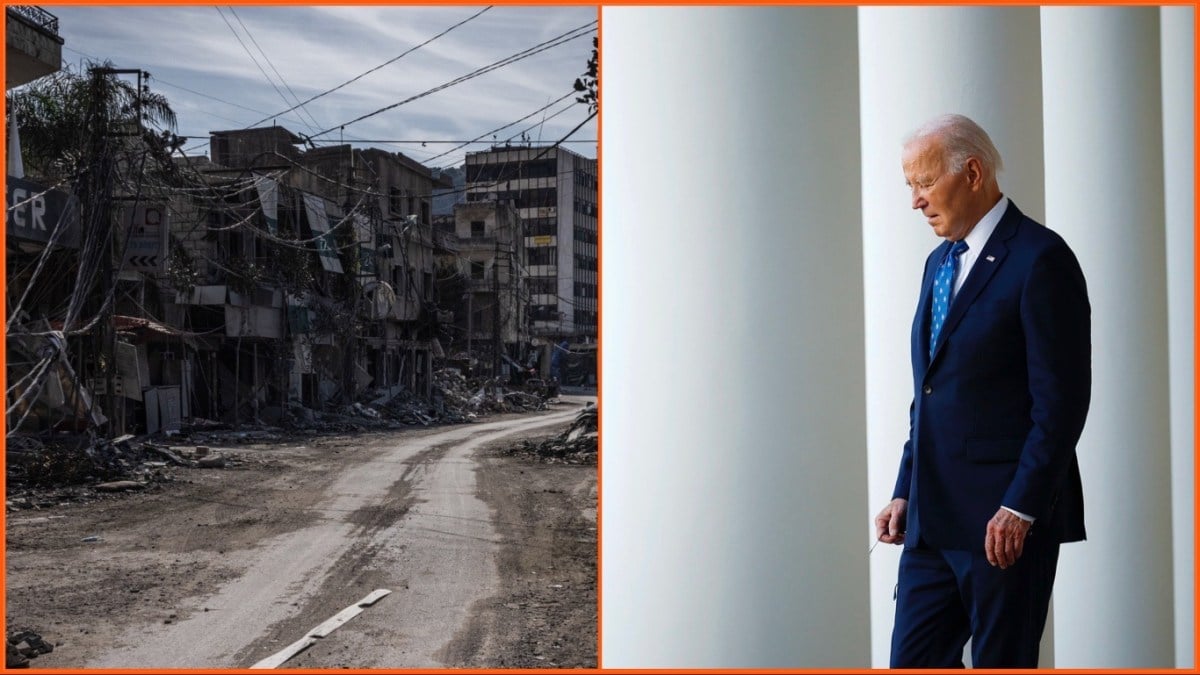After months of devastating conflict raging across southern Lebanon and the Golan Heights in Israel, President Joe Biden has announced that a deal has been struck between the governments of the two countries, leading to a prompt ceasefire that comes into effect tomorrow morning.
Since the day after October 7, 2023, the Middle East has been embroiled in a catastrophic war that has already caused the deaths of tens of thousands of innocent civilians. The main conflict is between the State of Israel and Hamas, the nationalist paramilitary movement representing the Gaza Strip since 2007, but other proxies have since joined the fighting. One of these was the Iranian-backed Hezbollah, a Shia party with extensive military capabilities who have been operating independently from the main Lebanese Armed Forces since the early ’90s in southern Lebanon.
After Hezbollah intensified its rocket barrage into Golan Heights and other parts of Israel like Tel Aviv and Haifa, the IDF responded by performing a series of devastating air strikes into the heart of Beirut, killing Hezbollah’s top military commanders including Secretary General Hassan Nasrallah. Since then, Israel has also attempted a ground invasion of southern Lebanon, which met fierce resistance from Hezbollah and was thwarted to a large extent. The two sides have been engaged in fierce fighting since, causing the deaths of more than 4,000 civilians in Lebanon and Syria and hundreds in Israel.
Now it’s being reported that the two sides have reached a ceasefire agreement, which will halt all fighting for 60 days, the first major step towards de-escalation since October 7. Hours before the agreement was to take hold, Israeli fighters bombed Beirut again, killing more than 20 civilians, but President Biden now claims that the “devastating conflict between Israel and Hezbollah” has come to a close.
“Today, I have good news to report from the Middle East,” he wrote on X. “I have spoken to the Prime Ministers of Lebanon and Israel. And I am pleased to announce: They have accepted the United States’ proposal to end the devastating conflict between Israel and Hezbollah.”
According to The Associated Press, Resolution 1701 could play a major role in this new ceasefire deal. Hezbollah and Israel have been at each other’s throats for the better part of three decades, and we’ve already lived through a version of this conflict in 1978, 1982, and even 2006, famously referred to as the 34-day war. United Nations Security Council Resolution 1701 was supposed to end all conflict between Israel and Hezbollah in 2006, but it was never really enforced in full. Now could be the moment for the United Nations to mediate the situation in earnest and make sure that it never escalates into all-out war, though how successfully it will do so remains to be seen.
The Biden administration has been trying in vain to lower the temperature in the Middle East for months now, but this ceasefire could mark the beginning of the end of this gruesome war. Now that Hezbollah is backing down, at least for the next two months, the United States will be looking toward Tehran, which has vowed to retaliate against the Israeli strikes that targeted key cities in Iran last month. Meanwhile, the ICC (International Criminal Court) has just issued warrants for the arrest of Israeli Prime Minister Benjamin Netanyahu and former minister of defense Yoav Gallant for crimes against humanity, which could see them detained if they ever step foot in the 120 or so countries who are members of the court.
